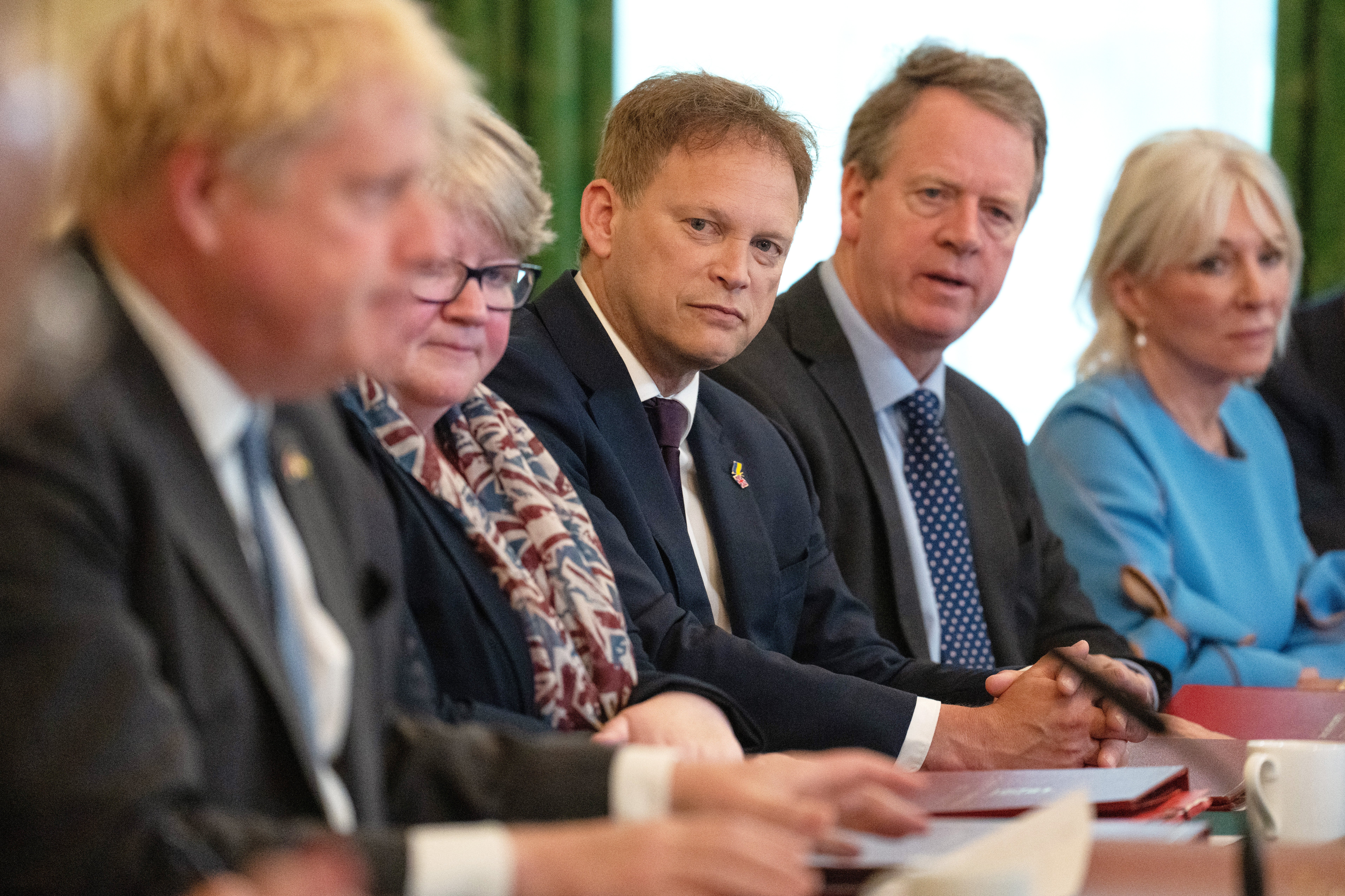Tory leadership hopefuls speak candidly about defending PM from scandal
Transport Secretary Grant Shapps claimed one of the Prime Minister’s flaws was that he was “almost too loyal”.

Your support helps us to tell the story
From reproductive rights to climate change to Big Tech, The Independent is on the ground when the story is developing. Whether it's investigating the financials of Elon Musk's pro-Trump PAC or producing our latest documentary, 'The A Word', which shines a light on the American women fighting for reproductive rights, we know how important it is to parse out the facts from the messaging.
At such a critical moment in US history, we need reporters on the ground. Your donation allows us to keep sending journalists to speak to both sides of the story.
The Independent is trusted by Americans across the entire political spectrum. And unlike many other quality news outlets, we choose not to lock Americans out of our reporting and analysis with paywalls. We believe quality journalism should be available to everyone, paid for by those who can afford it.
Your support makes all the difference.Tory leadership candidates have spoken candidly about their experiences of defending Boris Johnson – and the Prime Minister’s downfall – now they are free from the bind of collective responsibility.
Transport Secretary Grant Shapps said he believes he played a part in convincing Mr Johnson to step down, and claimed one of the Prime Minister’s flaws was that he was “almost too loyal to people”.
Former health secretary Sajid Javid meanwhile denied claims he and former chancellor Rishi Sunak coordinated their resignation letters.
I think actually one of his failings was he was sort of almost too loyal to people
Asked about the run-up to Mr Johnson’s resignation by Sky’s Sophy Ridge On Sunday programme, Mr Shapps said he wanted to make sure Mr Johnson was “getting the facts” as “things were coming to a close” with his premiership.
“I could see that things were coming to a close. I didn’t want him to be … one of the problems in being a leader, eventually you get people around you who will just tell you what you want to hear,” he said.
Asked if he thought his intervention was “part of the reason” for Mr Johnson’s departure, he said: “Yes, I mean, it’s presenting the reality. So, yes, of course.”
Asked if the outgoing PM is a man of integrity, Mr Shapps told Sky: “I think actually one of his failings was he was sort of almost too loyal to people.”
Asked if this included former Tory whip Chris Pincher, he said: “Pincher, people would have said (Dominic) Cummings, and other people.
“But, in the end, he was also quite brave. He’d take decisions that I think other politicians would have perhaps said ‘is that brave or is that reckless?’, and the quality of decisions is then really under the spotlight.”
The Transport Secretary said he chose not to resign from his Government job out of a sense of “responsibility”.
Mr Shapps also stressed he had defended the scandals coming out of No 10 in broadcast interviews out of duty to the collective responsibility of Cabinet, adding: “I would expect the same from anybody in a future Shapps government.”
Mr Javid meanwhile told broadcasters he and former chancellor Rishi Sunak did not agree to send their ministerial resignation letters at the same time.
When Mr Javid tweeted his resignation letter on Tuesday evening, Mr Sunak’s followed hot on its heels minutes afterwards.
Asked by BBC’s Sunday Morning about whether the two resignations had been coordinated, Mr Javid said: “Not at all. I had no idea what he was going to do. I can understand what he did because I read his letter afterwards, but not at all.
“This was a decision made by me, no one had – even the closest advisers in my department – no one had any idea I was going to do this and it wasn’t about leadership or anything else.”
Asked why he did not resign when he read the Sue Gray partygate report, he said: “Throughout that period, I was giving the benefit of the doubt.”
He said he thought this was “the right thing to do”.
It turns out some of the things I was told ... didn’t turn out to be true
Asked if he always told the truth when he represented the Government on the broadcast rounds, and if he believed what he had been told by the Prime Minister, Mr Javid said: “I trusted what I was being told.
“It turns out some of the things I was told – and I said this quite clearly in Parliament when I made my statement – didn’t turn out to be true.
“Now, I don’t know why someone would have said something to me that wasn’t true. That’s a question for them. But I trusted what I was told.”
Collective responsibility is a constitutional convention which means that all Cabinet ministers must publicly support Government decisions, even if they do not agree with them privately.